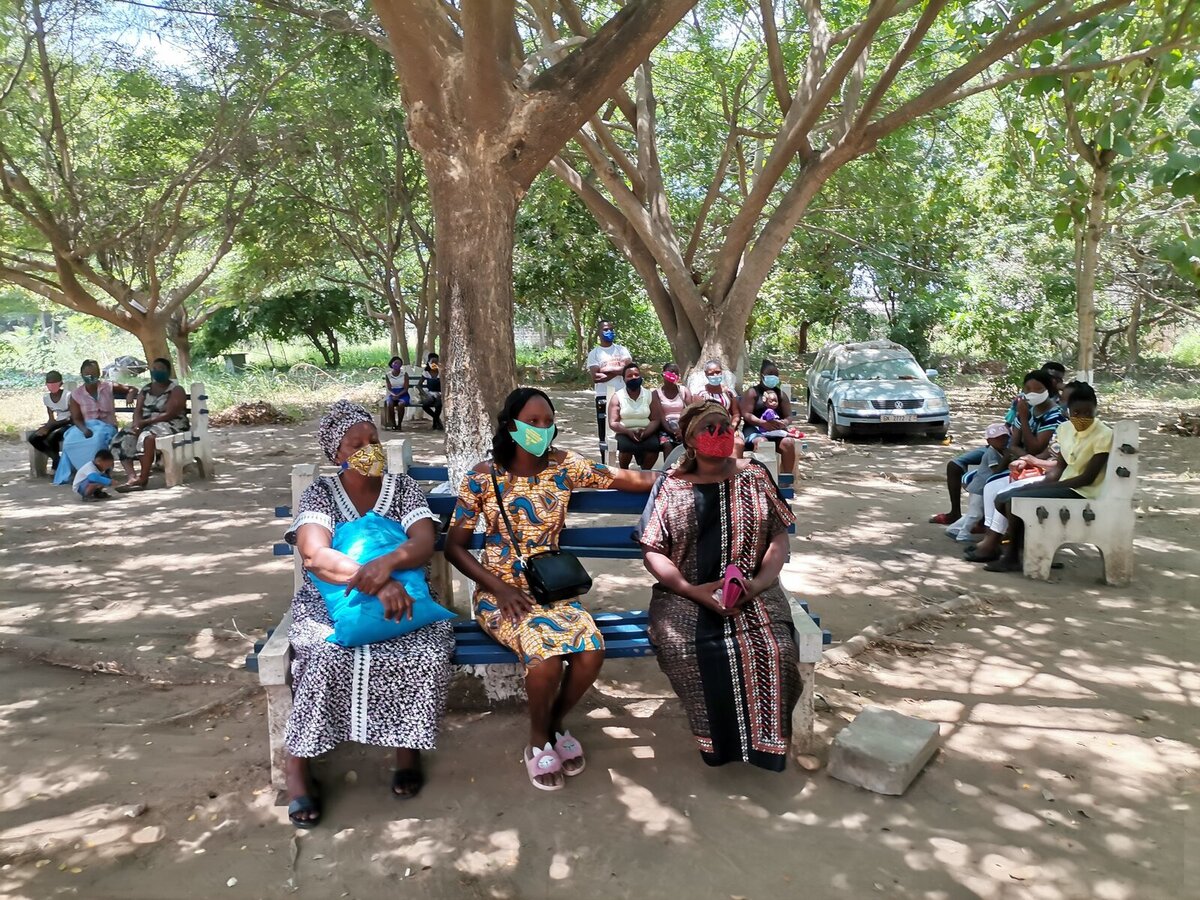Caritas Internationalis, of which Caritas Czech Republic is a member, calls in a recent statement on the UN and the decisions makers to urgently address the developing countries’ approach to coronavirus vaccine. According to Caritas Internationalis, the access to vaccines across the world has not been as equitable as it should be.
Since last year humanity was shaken by fear and uncertainty due to the spread of the COVID-19 virus, bringing to light the fragility and vulnerability of human existence. To fight against the virus, we tried to adapt to this unprecedented and challenging situation. When the vaccines became available, it brought much hope but also a wider gap in inequality.
"Until we're all safe from the disease, no one will be safe”
Caritas Internationalis emphasizes that every life is inviolable, and nobody must be left out when it comes to the distribution of the vaccines. The poor, minorities, refugees, the marginalised are the most exposed to the virus. Taking care of them is a moral priority because abandoning them puts them and the global community at risk. Our collective well-being depends on how we care for the less fortunate ones.
“In these days, when even rich countries compete with each other to get a larger share of the limited number of vaccines produced, the understandable fear of the people of rich countries and their pressure on their own politicians does not create much room for 'sharing' with poorer countries. But there are a number of reasons that are very rational and in my opinion better understandable and acceptable for the rich countries. The main reason is the fact that until everyone is safe from the COVID-19 disease, no one will actually be safe,” says Jiří Škvor, Head of the Humanitarian Aid and Development Cooperation Department of Caritas Czech Republic.
The virus mutates among vulnerable populations, creating more strains resistant to current vaccines. "This development, if we do not actively stop it, can easily thwart all the efforts put into the vaccine development. Thus COVID-19 can still be part of the reality of the entire planet for years to come, with all the consequences that come with it," adds Jiří Škvor.
Developing nations rely on COVAX
The rich nations of the Global North that poured money into the production of the vaccines are now waiting for a return on their investment. Which is something poor countries can't afford.
At the same time, developed countries have ordered the vast majority of planned vaccine production. A total of 12 billion doses of vaccine are expected to be produced this year. Nine billion of these were booked in advance by rich nations.
The poor countries of the global South, meanwhile, rely on the COVAX tool to ensure fair access to affordable COVID-19 vaccine. The purchase of vaccines and their worldwide distribution should be ensured through the COVAX initiative, which is jointly managed by the World Health Organization, the Gavi Alliance and the Coalition for Epidemic Preparedness Innovations (CEPI).
The COVAX mechanism was set up in April last year in order not to repeat the 2009 scenario, when developed countries bought up the vaccine against the pandemic flu.
But even this time, it is not without problems. Although COVAX brings together 190 world’s economies, most of them have obtained the vaccine outside of this tool. Moreover, neither the Pfizer vaccine nor the Moderna vaccine is part of this fund. Individual countries thus acquired them through bilateral agreements.
Caritas Internationalis calls for assistance to developing countries
Thanks to the vaccines that they acquired, rich countries are currently trying to vaccinate their populations so that they can restart the economy. In the meantime the pandemic and the related economic problems continue in low- and middle-income countries which cannot afford to do the same. In some cases, these countries have high debts which only grow higher because of the pandemic.
Due to the coronavirus pandemic, poverty is increasing and the effects are particularly severe for children. As there is no possibility of distance learning in poor countries, dropout from school can affect children for life.
In this context, Caritas Internationalis calls on all decision-makers and the United Nations to take appropriate action. Specifically:
-
Call for a Security Council meeting to address the issue of access to the vaccines as a global security problem with firm political decisions based on multilateralism.
-
Undertake the debt remission of the poorest countries as quickly as possible and use the funds obtained to upgrade the medical and health systems in these countries.
-
Promote the local production of vaccines in different technical hubs in Africa, Latin America and Asia and make them available in the next six months by addressing the issue of patent and technical collaboration with the poorer nations.
-
Support local Civil Society Organizations to ensure preparation of local communities’ awareness and capacity building to prepare them to have access to preventive care
It is particularly important that the developing nations are not forgotten when it comes to the vaccination against COVID-19. This way it will not further deepen the inequality and the current crisis.
Read the full statement of Caritas Internationalis.
Are you interested in what life looks like on Caritas Czech Republic's country offices during the coronavirus pandemic? Soon you will find out all about it on our website. We are preparing series of interviews with the Country Directors, who will tell us a bit more about the “life during the pandemic”. The first part is coming soon and will focus on Mongolia.







